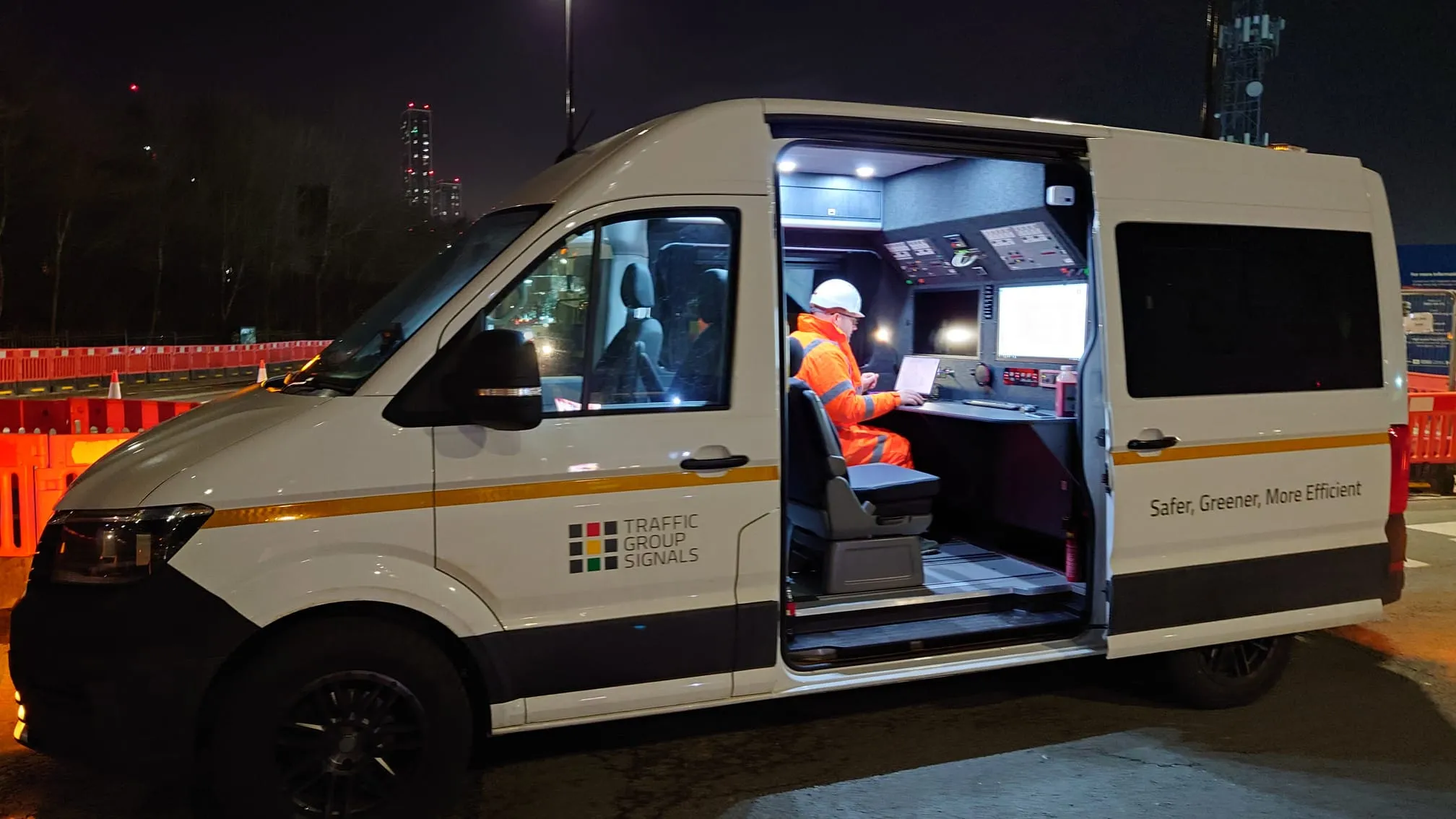
Traffic Group Signals has taken delivery of a converted Volkswagen Crafter van for use as what it says is a mobile worksite command vehicle.
Traffic Group Signals says that its Command Centre Vehicle gives its technical team and customers everything needed to “commission and control even the most complex sites in safety and comfort”.
The Volkswagen Crafter, introduced in 2006, is the largest three- to five-tonne van made by German automaker Volkswagen Commercial Vehicles.
Thanks to mobile CCTV, deployed on a 4m mast, when on-site, the Traffic Group Signals team can access a live feed of the traffic flow from within the vehicle, displayed across two 27” LCD (685mm) screens. Connectivity is also made simple thanks to an onboard WiFi network/4G router.
Integrated traffic signal controllers for the Metro Pro - a fully wireless, temporary traffic signal system featuring permanent signalling technology - and Evo 1 Pro – a crossover portable traffic signal system - can swiftly make necessary adjustments. At the same time, the onboard computer ensures seamless connectivity into Signal Studio, a software platform developed by Traffic Group Signals to design and implement complex temporary traffic signalling schemes.
The VW Crafter Command Centre Vehicle also incorporates a workbench area, a tripod traffic signal, additional batteries and a generator for charging. These features, alongside a wide selection of spare parts, provide backup for almost every scenario, says Traffic Group.
There is also a well-equipped meeting space within the vehicle, complete with rotating captain seats for roadside comfort, heating and air conditioning, plus a kitchenette with hot and cold water for on-site refreshments.
“Nothing quite beats being on the ground at a site when it comes to commissioning, especially for complex schemes,” said Jason Swan, technical manager at Traffic Group Signals. “By having this facility at the roadside, we can optimise timings based on local observations. This highly agile approach to fine-tuning timings enables us to move traffic more efficiently and minimises delays for the travelling public.”








